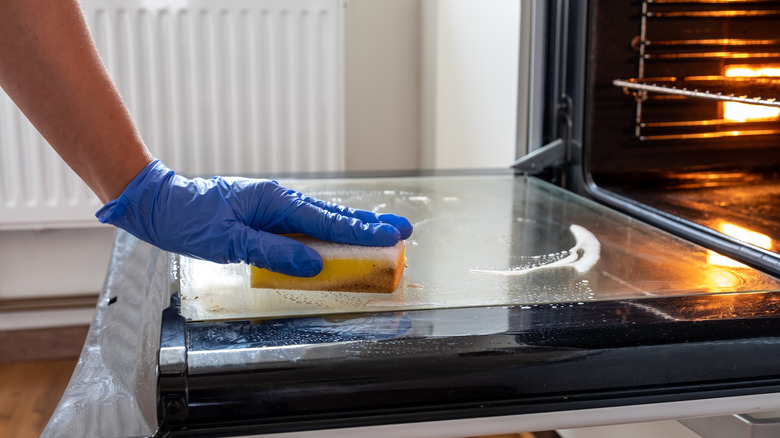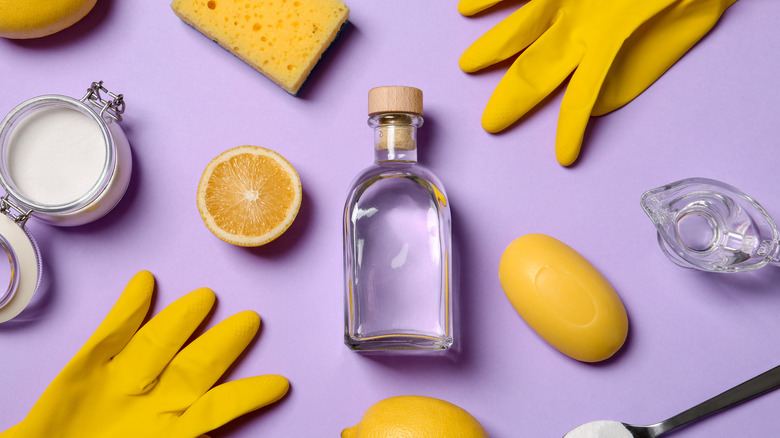Why You Should Stop Using Oven Cleaners Immediately
Did you know that certain ingredients found in oven cleaners pose major health risks? Home Serve points out that most oven cleaners contain butoxydiglycol or sodium hydroxide, which work to break down the grease and grime that gets stuck to the interior of your oven, but also pose risk of injury if not handled safely. Among the issues they cause are chemical burns, eye and skin irritation, asthma attacks, and nausea and vomiting if ingested. The danger with most oven cleaners is that they are sold in aerosol form, which disseminates the the caustic substances through the air and can cause them to end up on your skin or in your respiratory tract without you noticing.
Not only can oven cleaners prove harmful to your health, they can also ruin your oven if you're not careful, according to Ovenu. Due to their corrosive properties, oven cleaners can strip away paint, eat away at metal, impair rubber insulation, warp glass, and destroy the non-stick coating that enables the oven to run a self-cleaning cycle.
The good news is that there are ways to use oven cleaners safely to minimize the risks involved, explains Poison.org. Whenever you are in contact with oven cleaners, you should always wear gloves, a face mask, and goggles. It is also wise to open windows to allow for better air circulation. You should always store these products in a location that is inaccessible to pets and children, and leave them in their original packaging.
How to clean your oven without harmful oven cleaners
If you're worried about the potential hazards of using oven cleaners, you may be pleased to learn that there are alternative ways to clean your oven that won't cause any harm. The Kitchn names baking soda and vinegar as a popular cleaning duo for this task. To utilize this method, you will need to create a paste made from a 1/2 cup of baking soda and a bit of water. You should then use a sponge to rub it along the interior surfaces of your oven, avoiding contact with the heating coils. After 12 hours, sprinkle some vinegar inside the oven to react with the baking soda and create a foam. Finally, wipe away the residue with a wet cloth.
There are a couple of other oven cleaning mixtures that you can make with ingredients you likely already have at home, according to Treehouse. Both incorporate baking soda due to its abrasive properties. To make the first, fill up a drinking glass halfway with water, another quarter of the way with baking soda, and squeeze in 1-2 tablespoons of dish soap. For the second, combine baking soda and hot water in a 1:1 ratio and add a couple teaspoons of salt. Both these methods will require you to spread the mixture around your oven and let it sit for several minutes up to 12 hours. You can then wipe it clean with water and a cloth or sponge.

